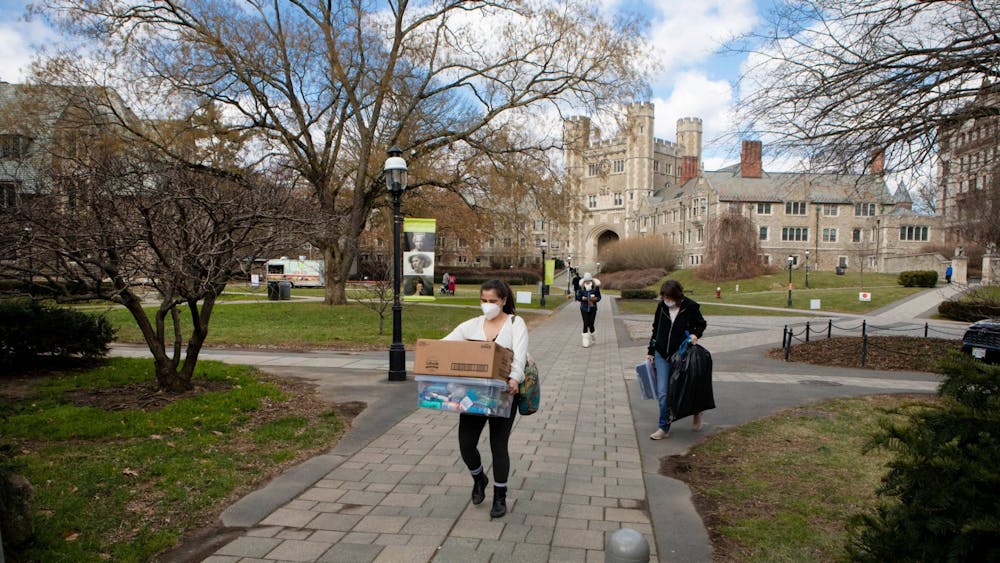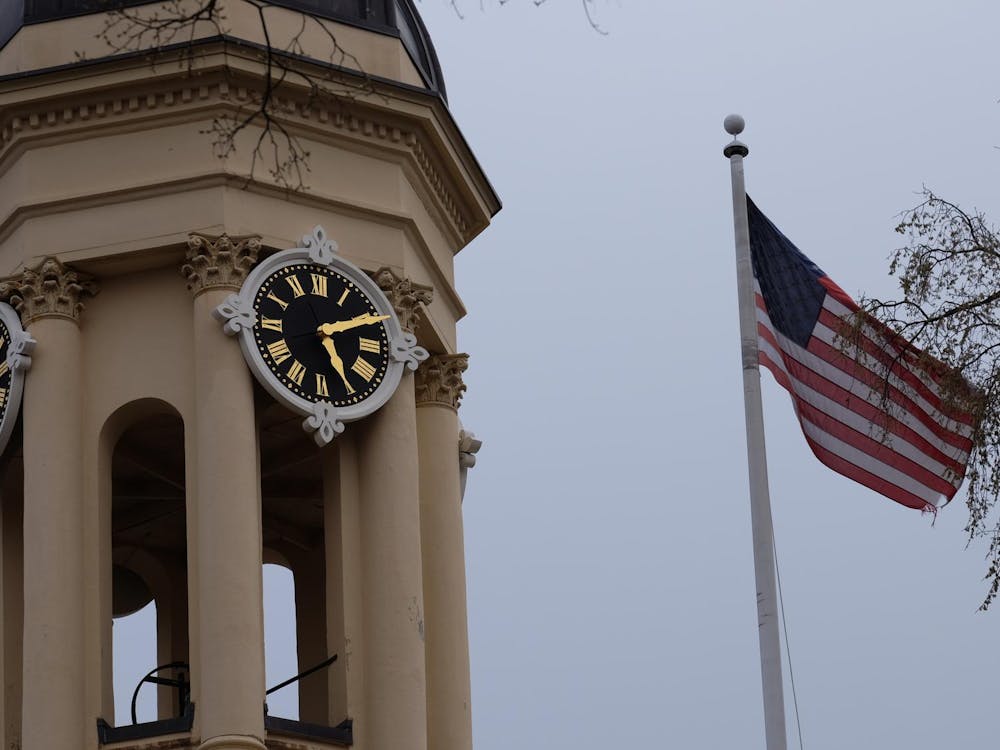The following is a guest contribution and reflects the author’s views alone. For information on how to submit an article to the Opinion Section, click here.
I know you are tired of hearing about the pandemic. Many are offering a comforting narrative that COVID-19 has “become endemic,” that omicron is “just a cold,” or that “letting it rip” builds immunity in the population. But this will not be the last surge. Uncontrolled spread provides ample opportunity for mutation, and variants which display considerable immune escape can cause severe disruptions to the safe and proper functioning of our society despite vaccinations and prior exposure.
We must act decisively to prevent the spread of the highly contagious omicron variant within the University community, the town of Princeton, and Mercer County by implementing layered mitigation measures recommended by public health experts, and in particular, an N95 indoor mask mandate.
Our society is in crisis. More people are currently hospitalized due to COVID-19 than at any point since March 2020. Healthcare workers are ringing the alarm bells. Hospitals in hundreds of U.S. counties are at capacity, and hundreds more, including in Mercer County, are forecasted to exceed capacity. One study suggests viral load peaks three to six days after diagnosis, which means shortened quarantine periods — reduced from 10 to five days — may be facilitating spread.
Without a robust testing infrastructure, we are left to estimate case rates, which, according to some national projections, peaked at six million per day. It remains unclear how many people, including members of our community who test positive, will suffer from post-acute sequelae of COVID-19, or “long COVID,” the persistence and severity of which we know worryingly little about.
With this in mind, we ought to consider the strategy declared by University administrators at the undergraduate town hall on Jan. 5 as little more than wishful thinking. One official suggested we should find comfort in omicron’s supposed mildness. Another reassured students that obsolete masking regulations that permit cloth masks would be sufficient to re-establish the campus “bubble” in the face of the extremely transmissible omicron variant.
Instead of implementing updated recommendations to prevent community transmission, University administrators are hoping that outdated guidance will be enough to prevent you from getting sick, and that if you do, it will only be “mild.” Such a policy shows little concern for how immunocompromised community members — our friends, professors, and loved ones — will fare under this public health disaster.
Despite the grim circumstances, we are not helpless. A growing number of epidemiologists, infectious disease experts, and columnists insist that the public should be provided with N95 masks to check the spread of the omicron variant. Cloth masks were never sufficient, and even with a suboptimal fit, N95s are better at preventing transmission than surgical masks. Institutions such as Salt Lake County as well as the University of Southern California have already mandated the use of higher quality masks. The University must follow and provide N95s free of cost until the end of the pandemic to all students, faculty, staff, and their families, including children.

Nor can we fail to consider the health of our neighbors. The municipality of Princeton set a record for the highest seven-day number of cases at 263 during the first week of January. Mercer County’s percentage change in reported cases over the past 14 days tripled; a high test positivity rate indicates that this figure is an underestimate. To safeguard our collective well-being, the University must take the additional step of distributing N95s to the broader Princeton community and ensuring consistent and equitable access to this resource. It can certainly afford to do so.
Though N95 masks were reserved for healthcare workers during a shortage in early 2020, production has since ramped up. You may have heard that N95s are uncomfortable to wear—however, there are various models, with many of them designed for comfort. These masks can safely be reused if worn in at least a three-day rotation, i.e., one mask for Monday, a second for Tuesday, a third for Wednesday, after which you may begin the rotation again. The widespread adoption of N95s during this surge, alongside existing mitigation measures, is critical to avoid an uncontrolled increase in cases as students return to campus.
Wishful thinking will not get us out of this crisis — wishful thinking is the crisis. The situation is dire, but if we act with urgency, we can take reasonable and measured steps to limit the damage and ensure a safe and healthy campus for all. Add your name to this petition to demand that the University provide all members of its community and our neighbors with N95 or equivalent masks as part of a layered mitigation strategy to prevent community transmission of the omicron variant.
Correction: A previous version of this story asserted that the City of Milwaukee and the University of Southern California had mandated N95 or equivalent masks. In fact, Milwaukee is only providing (not mandating) N95 masks and the University of Southern California is also permitting surgical masks, though not cloth masks.

Christopher Lugo is a senior from Ocala, FL majoring in the School of Public and International Affairs. He can be reached at clugo@princeton.edu.








